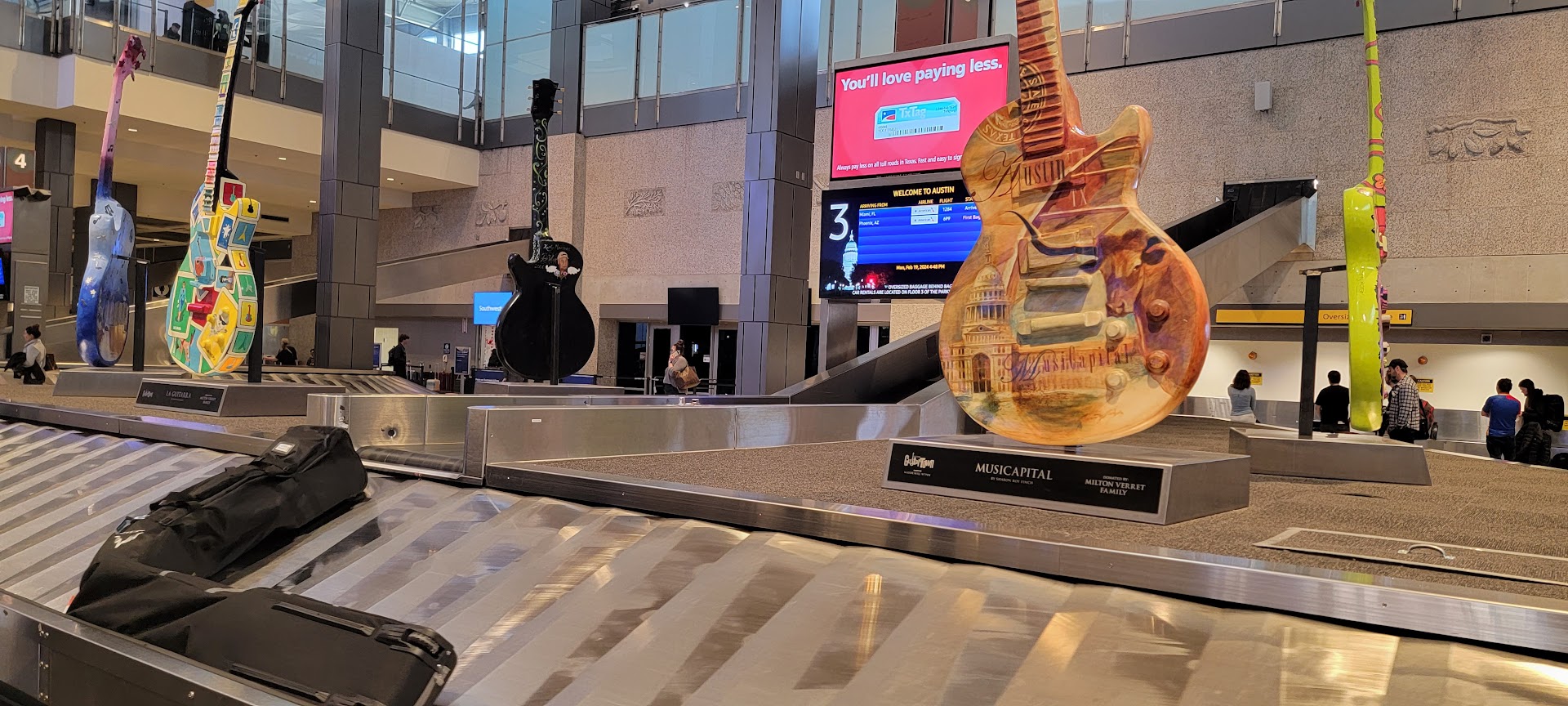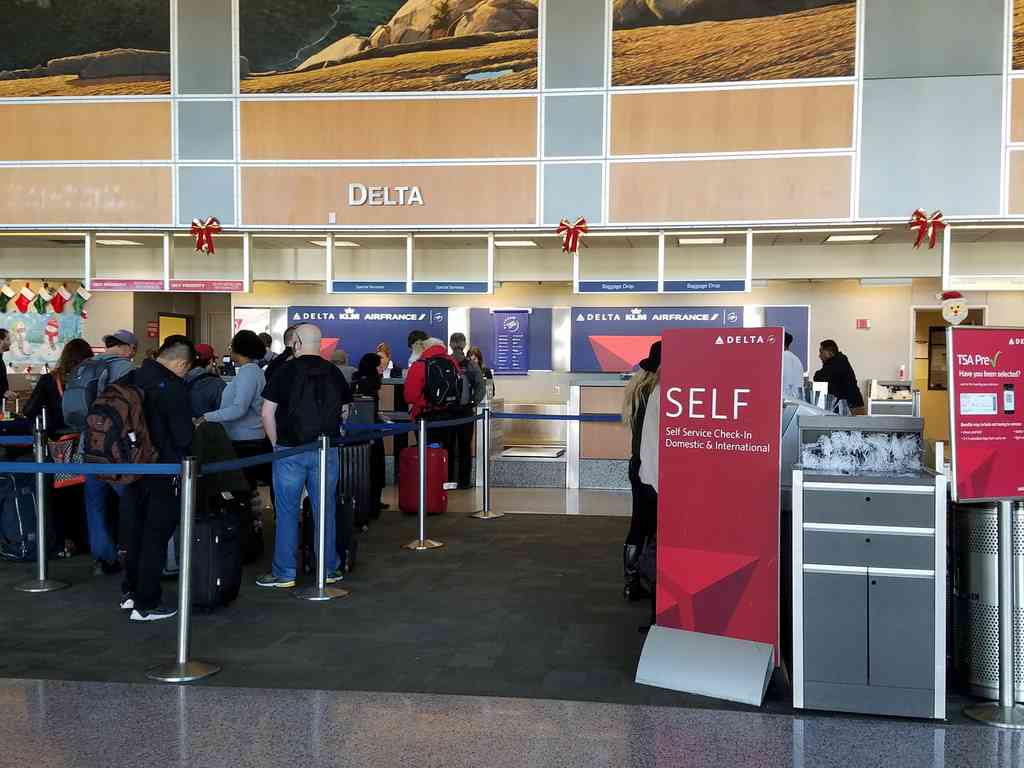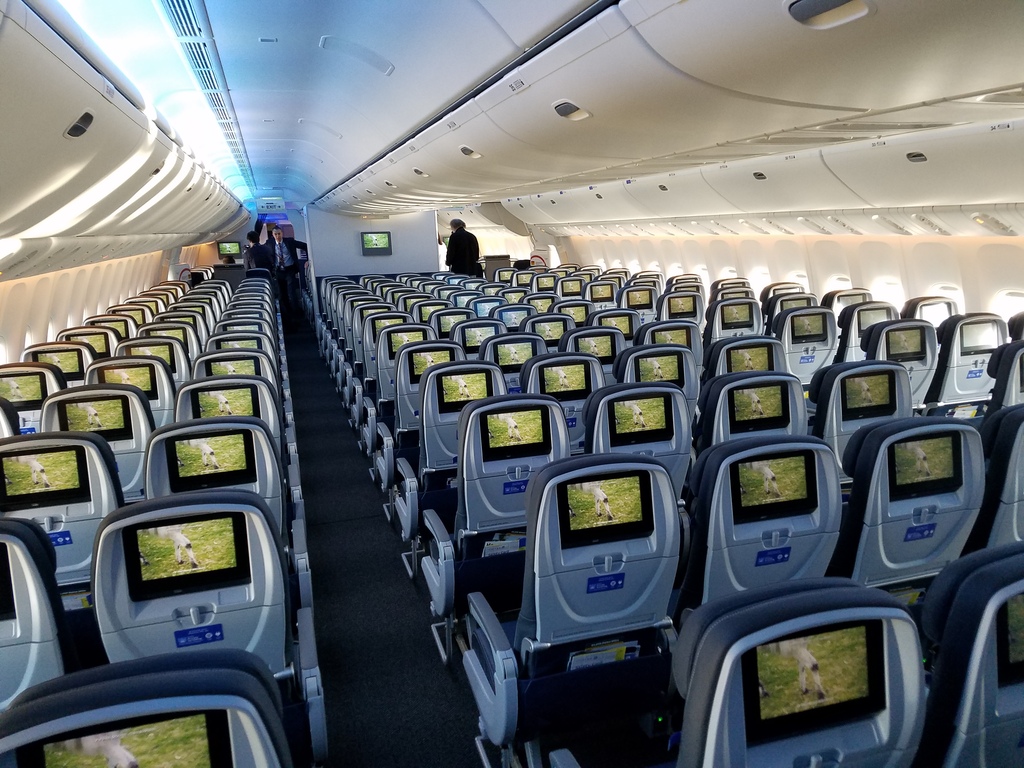The federal government has issued a final rule for how airlines disclose their fees, and requiring prompt refund of fees when they don’t provide the promised service.
It largely will not change how most passengers experience airlines most of the time. Airlines already disclose their fees, and generally provide refunds for services they don’t provide. There will be a stronger requirement, though, to refund checked bag fees for long-delayed and lost bags.
- Airlines will have to automatically and promptly refund passengers in cash or their original payment method if their flights are canceled, significantly changed, or services like checked baggage and Wi-Fi are not delivered as promised. Additionally, the rule requires airlines and ticket agents to fully disclose all fees for baggage, changes, and cancellations upfront at first instance of displaying itineraries and fares.
- The rule applies to U.S. and foreign airlines selling air travel in the United States.
- When passenger information is included in the search, fee information will have to take account of specifics like frequent flyer status, military status and fare class.

For the most part airlines already disclose fees fairly well. This isn’t going to bring much new information to consumes, and it will add a new layer of complexity to fare search. However,
- Requiring refunds where a service isn’t provided as-promised has always been a no-brainer.
- There are edge cases where airlines do a bad job disclosing fees. For instance, I’ve documented the way that American Airlines sells refundable business flexible fares that entail a $500 refund fee that almost no one knows about until they go to request a refund.

Airlines have until October 30 to provide fee information to ticket agents, and must comply with other elements of the rule by April 30, 2025.
Here are 8 key things to understand about the new rule:
- Requiring refunds for services not rendered is the best part of the rule but even here the results may be mixed.
For instance, airlines will have to refund checked bag fees when bags aren’t delivered within 12 hours (15-30 hours for international flights). That’s good but frankly too long.
Airlines will also be required to give refunds for flight changes greater than 3 hours for domestic flights and six for international flights. That’s better than what American has been doing – they tightened restrictions during the pandemic and never loosened them – but other airlines may revert to DOT requirements rather than their own more generous policies formulated against more ambiguous rules. So whether this winds up net good or bad is something we’ll have to wait and monitor Delta and United for over time.
- The rule will not actually “save [consumers] over half a billion dollars every year that they are currently overpaying in airline fees.” This is a bizarre claim that undermines DOT’s credibility.
The one major element of the rule that will return money to customers is the requirement to refund bag fees for lost and delayed bags. At $7 billion in bag fees per year, and less than 1% of bags delayed, that’s under $70 million – but most delayed bags aren’t delayed long enough to trigger the rule. DOT will get less than 1/10th the way to its claimed savings from returning fees to customers.
They do promote a belief that customers won’t pay fees because they don’t know about fees now but will know about them going forward. That’s rather silly. Maybe there are some people who think that if they don’t pay a seat assignment fee they’ll have to fly standing up like on Pakistan International Airlines. Telling customers they will get a seat assignment even if they don’t pay for one in advance might get some people not to pay (though their likelihood of being bumped from a flight without one in advance goes up). But the savings here are immaterial.
So where do the claimed societal savings come from? A story that consumers now go search for fees when buying tickets but they’ll save time by having the fees right in front of them while not deducting the time it will take consumers who aren’t looking for this information to wade through it (“time savings benefits are expected to range from $365 million to $484 million annually”).
This is a completely manufactured number, needed to justify the rule in terms of benefits outweighing costs – since DOT estimates costs of the rule at “$239 million to $331 million annually” – and is not a real number about benefits to consumers or the overall economy.
Still, they also claim consumers are overspending on fees by $543 million annually and that this rule will stop it which simply isn’t credible.
- Customers will have to wade through more information when booking tickets. Airlines will have to show fees specific to first and second checked bag and flight changes and cancels along with schedule and price when flight options are initially being shown.
Consumers are not permitted to opt out of these fee displays (!) – unless the airline first gets certification from the customer that no one on the reservation will travel with a carry-on bag or first or second checked bag. Oh, come on, let me save this in my customer profile.
I used to think this was entirely duplicative but after JetBlue quietly raised bag fees twice this year without telling anyone, or even anyone noticing for a couple of weeks, this isn’t entirely bad. In most cases customers are aware of the existence of fees – bag fees have been around for a decade and a half and there are fewer change fees than there used to be – and details on fees are readily available. For those passengers it’s additional clutter on the screen likely to fade into the background, like terms and conditions that nobody reads.
- Fortunately, the rule won’t hand planned new power over competition to the airlines. The Biden administration had originally proposed requiring any website displaying schedules to also display fees, but to allow airlines to control who had access to the fee information. This allowed airlines to shut down any website they didn’t like, such as SkipLagged. It was one of my biggest criticisms of the rule, and DOT reconsidered. Since anyone displaying schedules will have to display fees, airlines will have to make fee information available.
And it expressly doesn’t apply to metasearch sites or schedule and fare display sites. The rule only applies to ticket agents that “advertise or sell air transportation directly to consumers” so purely informational websites are excluded, and ‘for now’ websites that refer customers to other sites to purchase (metasearch) are excluded. That’s another improvement consistent with concerns that I raised when the rule was first issued.
- Frontier Airlines advertising will have to change. Discounts advertising an amount off of ‘base fare’ will have to include “all mandatory carrier-imposed charges/fees.” This really doesn’t affect larger carriers. But those $0 fare sales won’t be allowed any longer.
- Undermines the ‘name your own price’ opaque sales model that Priceline made its name with. Priceline would sell you an itinerary you’d commit to up front, without knowing the airline or schedule, often at a substantial discount. Airlines offered these flights because the opacity prevented consumers who were committed to specific airlines or times from taking advantage of the discounts, while picking up incremental business from the most price-sensitive consumers.
However if a site trying to sell this way were to provide specific fees for an itinerary, that would effectively disclose the airline. They’d even have to disclose fees based on elite status identified by the customer, revealing whether status eliminated those fees and making it easier to discern the carrier (and thus also get a better idea of the likely schedule in many cases).
- Expect longer telephone hold times. Each phone call to an airline involving searching for flights will take a little longer as reservations agents read out required fee information.
- Picks and chooses which fees matter – and fixes those in place even as the industry changes which may not be great for consumers. DOT has decided that consumers are supposed to know about bag fees and change fees, but not all such fees. It leaves out some of the more confusing fees, for instance it doesn’t require disclosure of fees for oversize or overweight fees, where policies vary by airline.
And rules tend to remain fixed even as fees being charged change – basic economy fares for instance were largely a non-issue the last time that DOT looked at this. United and Delta are both talking about greater unbundling of their premium products so we don’t know what new fees we’ll see going forward.

The new rule is a lot less ambitious than when it first announced, and a lot less harmful.
It no longer hands airlines the tool that they could have used as leverage to shut down innovative, consumer-friendly sites by withholding fee information (and therefore making it illegal for those sites to display schedules and fares) and leverage to force sites to sell ancillaries on their behalf – ironically increasing fees paid to airlines.
There’s a bit of good (refunds) and bad (information clutter) in the rule, and it could have been a lot worse – the rule isn’t nearly as damaging as what DOT had first proposed.


Right wing gary, against consumer protection laws? Colour me surprised.
Republicans letting perfect (or more accurately, rich people) be the enemy of good.
Pathetic.
Great! Now do lodging, President Biden. I want Airbnb to display prices inclusive of service and cleaning fees. Zillow to display HOA alongside good faith estimates of market value, not a list price which is meaningless in many markets (looking at the insane Bay Area).
The more I go through life, the more I realize government regulation is good and necessary.
What are you talking about @James ?
I say that there are parts of this rule that are good (requirement to refund bag fees when not delivering bags in a timely manner), parts that may wind up good or bad (3 hour change rule for domestic ticket refunds) since it is better than what American has today but worse than what the other largest carriers do and those may gravitate towards what’s required, and also that the rule is better than what was first proposed – the worst elements were removed during the comment period.
That said, there are parts of this that don’t add much, aren’t great, and some disingenuous claims about consumer and societal benefit.
In other words, it’s a mixed bag, which really shouldn’t be super surprising or controversial.
Gary, you’d be surprised how many people I know who go to pick a seat, see that only paid seats are available, and pay for one fearing they will not get a seat otherwise.
I know it’s silly for frequent fliers and those who know airlines as well as you do, but people really do these silly things. And I’m sure many people feel “lucky” to get a voucher (instead of a cash refund) for changes/cancellations – even though we know what we’re entitled to. More information is generally better.
But completely agree with you that bags needing to be delayed 12+ hours is ridiculously long.
@Daniel – yes but having a seat assignment does position you better on an oversold flight
@James
Ad hominem attacks are the empty refuge for those who can’t intelligently debate the points.
It would be better form to actually argue against Gary’s points directly with facts of your own rather than post a vacuous talking point about Republicans and the rich!
I wonder how the new rules will affect customers who are downgraded but still take the flight.
Constant problem for me with paid first class trips:
American Airlines will rebook your connecting segment if your departing flight is delayed more than ten minutes past the *original* connection departing time. If your connecting flight is also delayed the system does not take this into account.
If you arrive for your original connecting flight you must accept a downgrade to main cabin since your original paid first class seat will be used for complementary upgrades. A “refund for the difference in fare is provided in seven days” to flight on your original flight, however the gate agent will not disclose what the return amount will be.
Will this effect slime balls like Ryanair? (even foreign airlines selling tickets in the US)
If you cancel a flight with them they do not refund checked baggage/seat fees or even taxes(even during covid shut downs)?
How about delays falsely blamed on weather?
Name Your Own Price is dead and will not return. The Internet killed it by sharing all the information needed to pierce the opacity.
NYOP was entertaining while it lasted, including 50% off a 5-star hotel in Venice.
@derek – delays are rarely “falsely” blamed on weather. You do understand (rhetorical because obviously you don’t) that a weather delay could be due to the very first flight of the day. For example, it is raining with strong wind in Boston and a plane is scheduled to fly (AA for example) BOS-CLT, CLT-DFW, DFW-ORD and then ORD-JFK (not sure this is practical given flight times and connections but serves to illustrate the point. The weather could be PERFECT in CLT, DFW, ORD and at JFK but due to the delay first thing out of BOS all those flights are legitimately delayed due to weather.
@Gary – Does the government understand that majority of people don’t pay any bag fees (elites, first class, SW fliers, those with certain credit cards, military on most airlines, etc.) so not only are the benefits overstated but if you don’t pay anything to check the bag there is absolutely no payback for late or lost luggage so this doesn’t benefit the majority of fliers at all! Only adds more administrative cost to airlines which will be reflected in higher fares. However, Brandon can claim he is doing something “for the people” in an election year. God I hate virtue signaling.
A couple details:
A significant schedule change does not REQUIRE a refund. It requires a refund if the passenger does not “accept alternative transportation or travel credits offered”. That is an important point to add here because otherwise airlines could just cancel flights on you and you end up with no ticket which may have been a cheap ticket.
A schedule change is defined as 3 hours – for domestic – and 6 hours for international, which is absurd. This will surely cause a loss of rights than what we currently have presently. A 5:50 schedule change is horrible if when you need to be connecting to trains, getting connections, flying on short weekend Caribbean getaways, getting to overseas business meetings, etc.
And baggage gets a refund on a 12 hour delay – for domestic. For international it is up to 30 hours depending on flight length which is absurd. When you pay the excessive baggage fees to these airlines, you are paying for the service that your bag flies with you on that plane. If they don’t make that happen, you should get your money back or a good percentage of it. It is very simple. They failed at providing the service. Delta currently offers 2500 miles if the bag is 20 minutes late. I think that should be the baseline, not 30 hours. Absurd.
As to the suggestion that adding fees and other things will just add lots of data on a screen – that is only if they allowed to do that. What can easily happen is a simple option dropdown which you already currently see on search travel search engines that ask “how many carry on bags” “how many checked bags” etc. Very easy to click off what you are and have the total price listed as being all inclusive. That would be far more helpful and that is what should’ve been mandated – not a screen full of information that overloads the reader.
Unfortunately as with most of these regulations, they get watered down to the point they work against the consumer while also causing burden on the company.
After reading this article and the responses, it once again makes me pleased that I only fly Southwest.
The FAA has defined types of delays so that the airlines have guidance and don’t make up their own definitions. Search for “FAA Types of Delays”. Per the FAA, a Weather Delay is “Weather delay is caused by extreme or hazardous weather conditions that are forecasted or manifest themselves on point of departure, enroute, or on point of arrival.” No Chaos Theory involved.
Yet another government overreach and a totally unnecessary waste of time and effort. The clown running the department needs to be sent back again to mess up the bus system in South Bend.
I would be shocked if the new rules do much of anything. The refunds for delayed flights are similar in Europe, but the airlines almost always find a way to say it was “unavoidable” and not their fault, and thus they don’t have to pay. It will be the same here. The bag fee issue May have some relevance, it’s hard to say, but I doubt that affects very many travelers.
FYI on a minor article correction: Frontier offers $0.01 airfares, not $0.00, for paying subscribers for any version of their “Go Wild Pass” memberships.
@Rick Schupp – click the link in the piece to Frontier’s $0 fare sale, it was an actual offer a year and a half ago and didn’t require Go Wild Pass